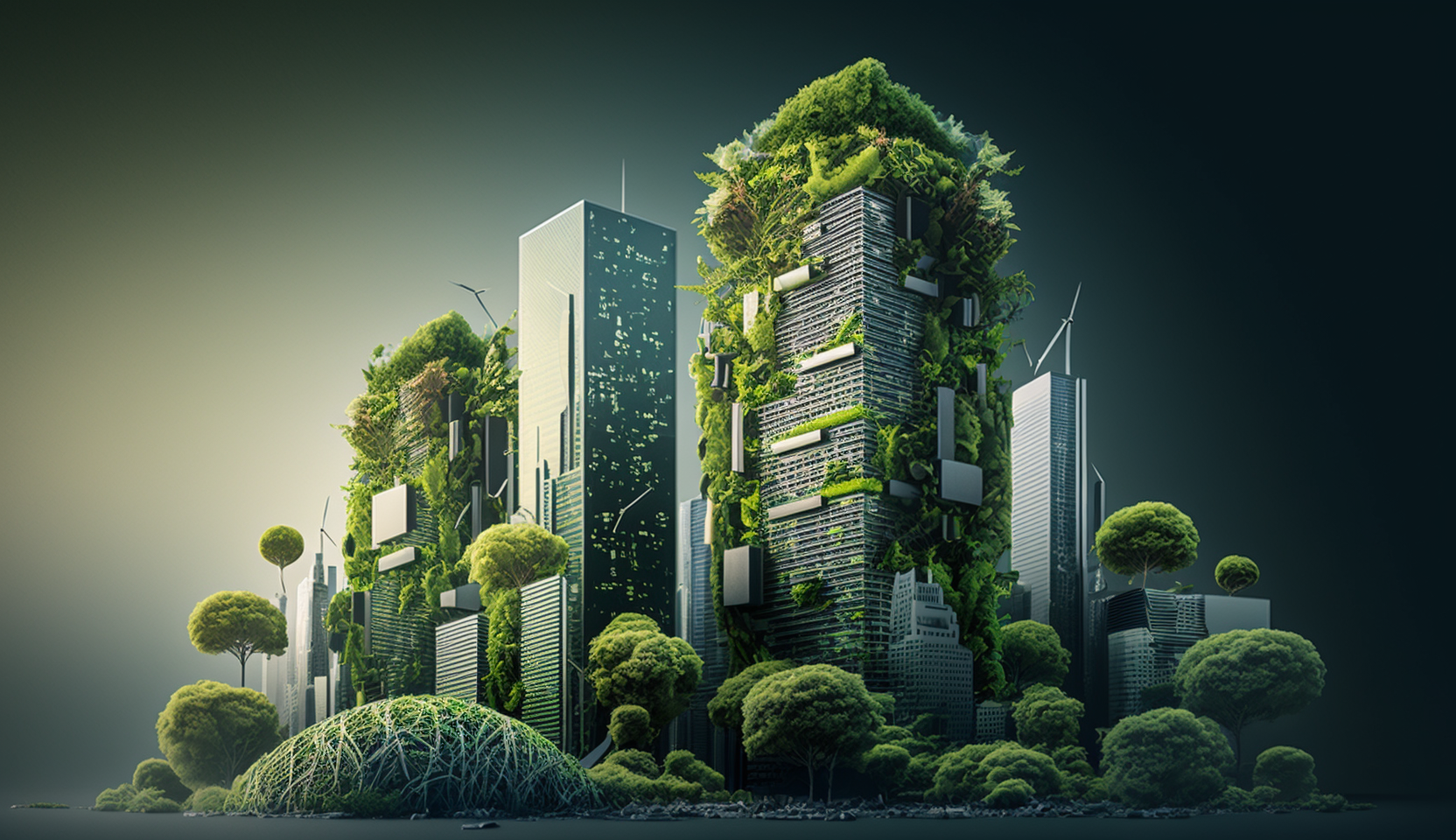 |
| An AI-generated visual of an eco-friendly metropolis - a smart city reimagined |
The expeditious proliferation of urbanization presents an exclusive array of quandaries for urban planners, engineers, and policymakers. As the populace of the world persists in concentrating within urban localities, municipalities must conceive innovative means to govern resources, abate carbon emissions, and refine the quality of existence for their denizens. The burgeoning field of artificial intelligence (AI) plays an influential role in configuring the forthcoming aspects of urban planning and transit systems, thereby instigating the emergence of sustainable and sophisticated cities.
AI in Urban Planning and Transportation Systems
AI technologies are being integrated within urban planning and transit systems to optimize resource allocation, traffic flow, and public transit. By scrutinizing voluminous data sets from sensors, traffic cameras, and Internet of Things (IoT) devices, AI algorithms can furnish invaluable insights to municipal planners and transit engineers. These insights are subsequently employed to design more resourceful transit grids, reduce traffic congestion, and curtail travel duration.
For instance, AI-fueled traffic management systems have the ability to predict and adapt to fluctuating traffic patterns in real-time by adjusting traffic signals to optimize flow and mitigate gridlock. Similarly, public transit systems can also harness the power of AI, with algorithms aiding in optimizing routes, schedules, and passenger capacity.
Reducing the Carbon Footprint of Cities
One of the foremost advantages of urban planning and transit systems driven by artificial intelligence is the prospect of curtailing the carbon footprint of metropolises. Through designing more productive transit networks and advocating for the use of public transportation, cities can abate their greenhouse gas emissions and foster a more sustainable future.
 |
| Photo de Kostiantyn Stupak: https://www.pexels.com/fr-fr/photo/photographie-de-paysage-urbain-timelapse-pendant-la-nuit-599982/ |
Moreover, AI can assist municipalities in pinpointing regions with elevated energy usage or wasteful practices, thus allowing for targeted interventions to mitigate their environmental impact. As an illustration, analytics fueled by AI can discern buildings that are less energy-efficient, spurring retrofitting or enhancements to diminish energy consumption and emissions.
A Greener Future with AI and Smart Cities
As artificial intelligence persists in transforming urban planning and transit systems, cities across the globe are shifting towards a more sustainable and eco-friendlier future. By adopting solutions empowered by AI, city planners, policymakers, and denizens can collaboratively strive to curtail carbon emissions, refine resource allocation, and amplify the holistic standard of living in urban habitats.

